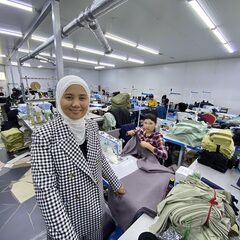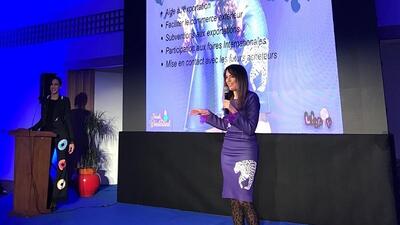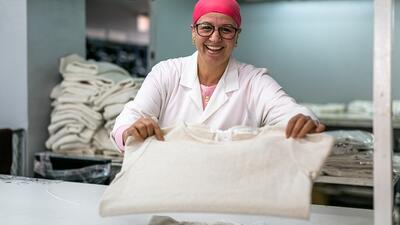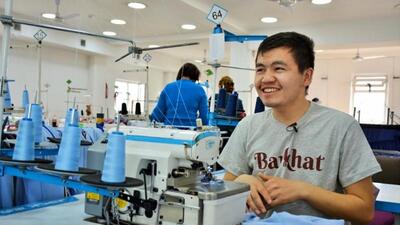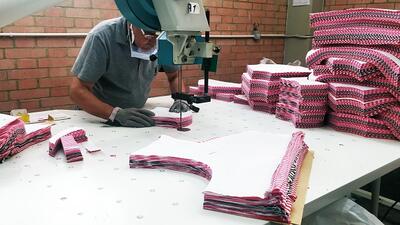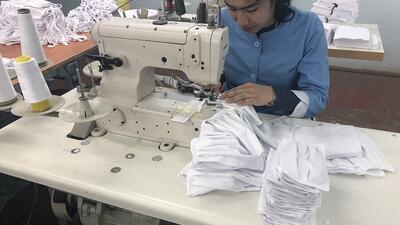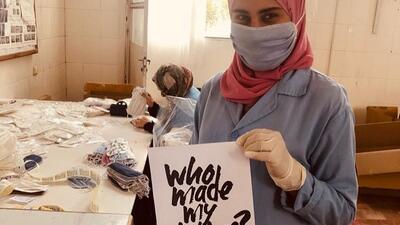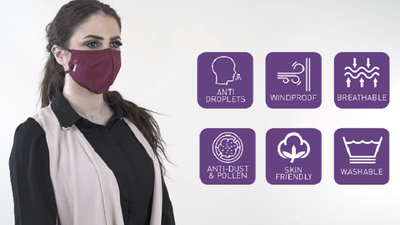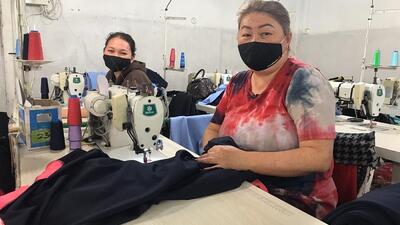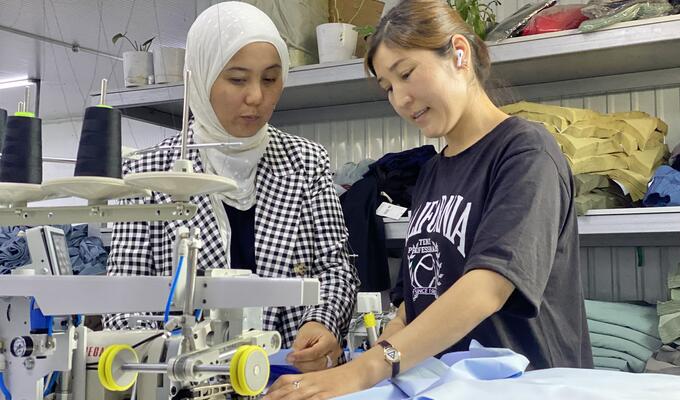
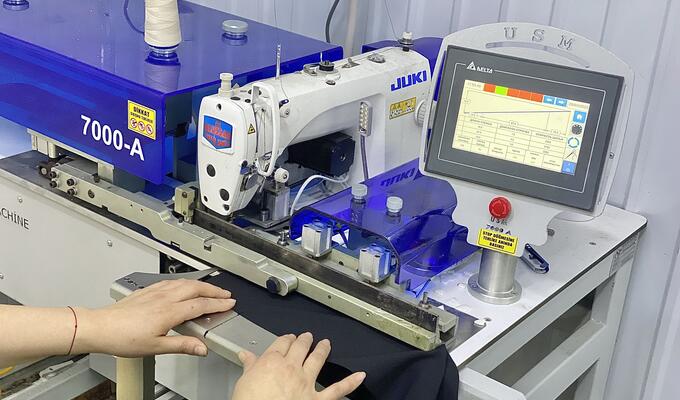
Kyrgyz fashion label designs new deals after CPM fashion show
RAIMA joined the Collection Première Moscow, where they showcased their designs and inked new deals that have already changed the way they do business.
‘We were inspired to apply to the GTEX programme after witnessing many of our peers in the sewing industry benefiting tremendously from their participation. We want to take our company to the next level and are ready to put in the necessary effort to achieve that,’ said Buburaim Esenova, head of the RAIMA garment enterprise.
The women's wear manufacturer joined the Global Textiles and Clothing Programme (GTEX), implemented by the International Trade Centre (ITC) and funded by the Government of Switzerland in 2023 after hearing about it from their colleagues. Buburaim said the company saw significant results in the first quarter alone after joining the programme.
Participation in the CPM (Collection Première Moscow) exhibition in February 2023, as part of the GTEX beneficiaries' group, was one of the most critical steps for RAIMA.
According to her, their successful participation was largely thanks to the preparatory work done under GTEX mentorship. The company received valuable advice on pricing and selecting pieces for the exhibition.
‘I don't believe we could have prepared as well without any guidance, as it was our first time participating in this kind of event. For instance, initially, we planned to bring our winter collection, thinking it would be more appropriate since the exhibition takes place in winter. The sellers were expected to showcase their pieces for the spring-summer season. So, we had to create a new collection and make several adjustments quickly. We could not have done it without the consulting help of the GTEX experts,’ noted Buburaim.
Adapting business to new opportunities
Participating in CPM is a significant business opportunity for Kyrgyz garment manufacturers, as Russia is one of their biggest export markets. After the show, RAIMA received an offer from a Russian company to manufacture under their brand using their materials and accessories.
‘We had to think about it since we are a family business - I run it with my husband and sister. After some discussion, we put forward certain conditions, which our Russian partners met. A deal was reached, and we plan to send them our first batch this May in line with the agreed tolling scheme, which is completely new for our company,’ Buburaim said.
This development demanded structural changes in RAIMA's business. The company decided to invest more in labour productivity and quality improvement. New equipment was purchased to increase automation in production, manufacturing facilities were expanded, and personnel received additional training. According to the company's management, these steps will help increase productivity, save jobs, and establish year-round production.
The company has also changed its management approach, introducing more separation between departments and delegating more responsibilities to each of them.
‘The first thing we did was hire a sales manager. With our expansion to new marketplaces, we had to evolve our communication style to present a more sophisticated professional image. We plan to introduce more changes in the future, guided by the consultations provided by the GTEX programme,’ Esenova said. ‘For instance, we want to receive training on quality management systems and gain new skills and knowledge in this area. Right now, our company is focused on making the most of all the opportunities the programme offers for business development.’
By leveraging GTEX support, RAIMA is empowering growth and success in the Kyrgyz garment industry, forging new partnerships, and expanding its market presence.
About the GTEX Programme
The Global Textiles and Clothing Programme (GTEX) supports small businesses and business support organizations working in the textile and clothing industry in developing countries to increase their export competitiveness.
The GTEX programme is funded by the State Secretariat for Economic Affairs (SECO) of the Swiss Confederation and focuses on five priority countries (Egypt, Morocco, Kyrgyzstan, Tajikistan and Tunisia).




